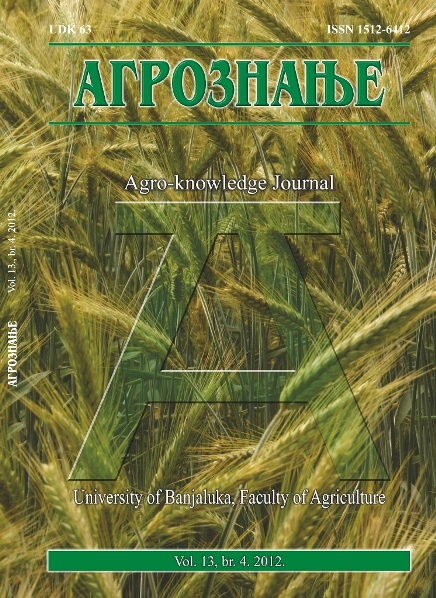The Content of NPK Nutrients in Vegetative Organs of Cauliflower (Brassica oleracea var. botrytis L.) Grown in Soilless Culture Technique
DOI:
https://doi.org/10.7251/AGREN1204633MAbstract
The experiment was carried out in a greenhouse in the Mediterranean Agronomic Institute of Bari (IAMB.) located in the southeastern Italy. The aim of this research was to evaluate macronutrient (NPK) status of cauliflower grown in three inert substrates (perlite, gravel and pozzolana). Nutrient losses were very low due to a good management practice and control of fertiliser application. The highest NPK nutrients application efficiency was obtained in phosphorus, 97.2%. Among nutrients, potassium was lost in the highest percentage (11.6%). Obtained losses did not cause high pollution of the soil and ground water.Downloads
Published
2012-12-28
Issue
Section
Articles

